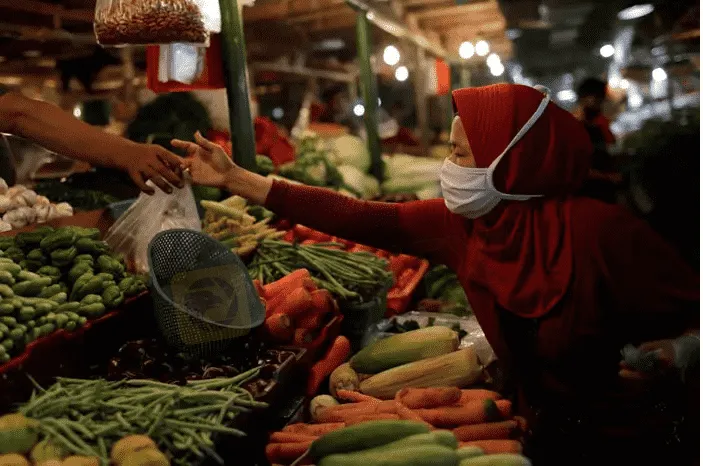简体中文
繁體中文
English
Pусский
日本語
ภาษาไทย
Tiếng Việt
Bahasa Indonesia
Español
हिन्दी
Filippiiniläinen
Français
Deutsch
Português
Türkçe
한국어
العربية
Indonesia central bank in no rush to hike rates as inflation hits 5-yr high
Abstract:Indonesia’s consumer prices rose at the fastest pace in five years in June, topping forecasts and breaching the central bank’s target range amid a surge in food prices, official data showed on Friday.

Indonesias central bank is in no rush to hike interest rates, its governor said on Friday, even as June consumer prices rose at the fastest pace in five years, topping forecasts and breaching its target range amid a surge in food prices.
June‘s annual inflation rate accelerated to 4.35%, the highest since June 2017 and above the 4.17% forecast in a Reuters poll. Last month’s figure was 3.55%.
Bank Indonesias (BI) target range is 2% to 4%.
However, the annual core inflation rate, which strips out government-controlled and volatile prices, was below market expectations at 2.63% in June. The poll had forecast a 2.72% rate, while Mays rate was 2.58%.
BI Governor Perry Warjiyo said the data set showed low core inflation and low inflation of government controlled prices, due to large subsidies keeping some energy prices unchanged.
“Core inflation is relatively low, so that it provides room for flexibility for us to not be in a rush to raise interest rates,” he told a parliamentary hearing, repeating a pledge to keep interest rates at record low until BI sees signs of fundamental price pressures.
BI, one of the worlds least hawkish central banks, has said it would focus more on the core inflation rate, instead of the headline figure, to determine the pace of its post-pandemic policy normalisation.
Data showed the rise in inflation was primarily driven by rising prices of chilli, shallots, eggs, and transportation tariffs.
Margo Yuwono, head of Indonesias statistics agency, said high global prices of wheat, sugar and soy had so far had limited impact on domestic inflation. While flour and noodle makers had seen costs rising, they have not passed this on to consumers, he said.
Bank Permata economist Josua Pardede said any change in BIs policy stance would likely be driven more by movements in the rupiah currency, which has been under pressure since June due to capital outflows linked to the U.S. Federal Reserve monetary tightening.
“Commentary in the run-up to the July meeting will be scrutinised for signs of change in stance in light of narrowing US-ID rate differentials and (an) under pressure currency,” DBS economist Radhika Rao said.

Disclaimer:
The views in this article only represent the author's personal views, and do not constitute investment advice on this platform. This platform does not guarantee the accuracy, completeness and timeliness of the information in the article, and will not be liable for any loss caused by the use of or reliance on the information in the article.
Read more

WikiEXPO Dubai 2024 is coming soon
3 Days Left!

Trader Exposes Unethical Practices by STP Trading
A recent allegation against STP Trading has cast doubt on the firm's business practices, highlighting the potential risks faced by retail traders in an increasingly crowded and competitive market.

What Makes Cross-Border Payments Easier Than Ever?
Cross-border payments are now faster, cheaper, and simpler! Explore fintech, blockchain, and smart solutions to overcome costs, delays, and global payment hurdles.

WikiEXPO Dubai 2024 is set to open!
4 Days Left
WikiFX Broker
Latest News
Webull Partners with Coinbase to Offer Crypto Futures
eToro Expands Nationwide Access with New York Launch
Why Is UK Inflation Rising Again Despite Recent Lows?
Hackers Charged for $11M Crypto Theft Using SIM-Swaps
Role of Central Banks in the FX Market
FCA Alerts Against Sydney FX
What Makes Cross-Border Payments Easier Than Ever?
Trader Exposes Unethical Practices by STP Trading
Interactive Brokers Launches Tax-Friendly PEA Accounts in France
Google Warns of New Deepfake Scams and Crypto Fraud
Currency Calculator


